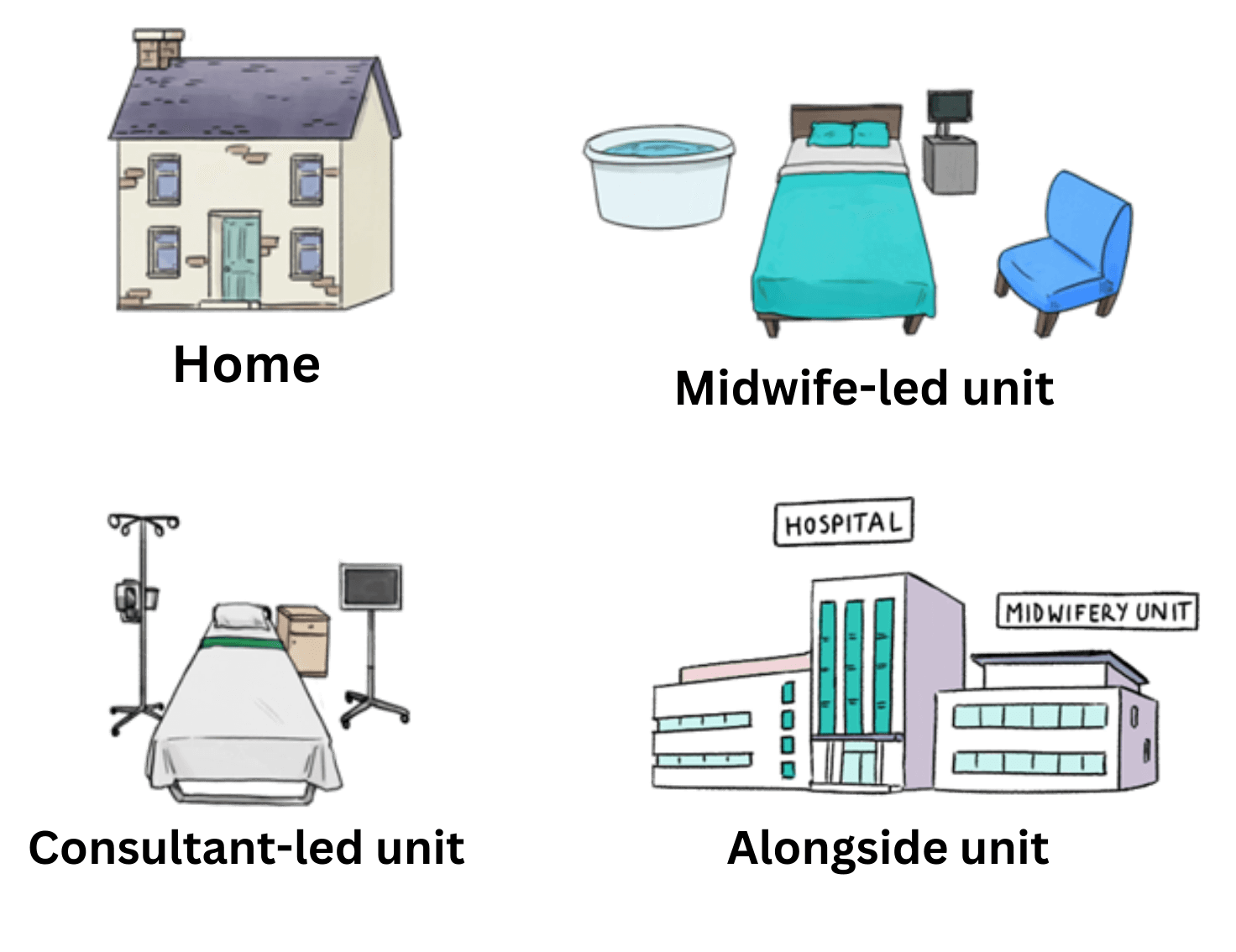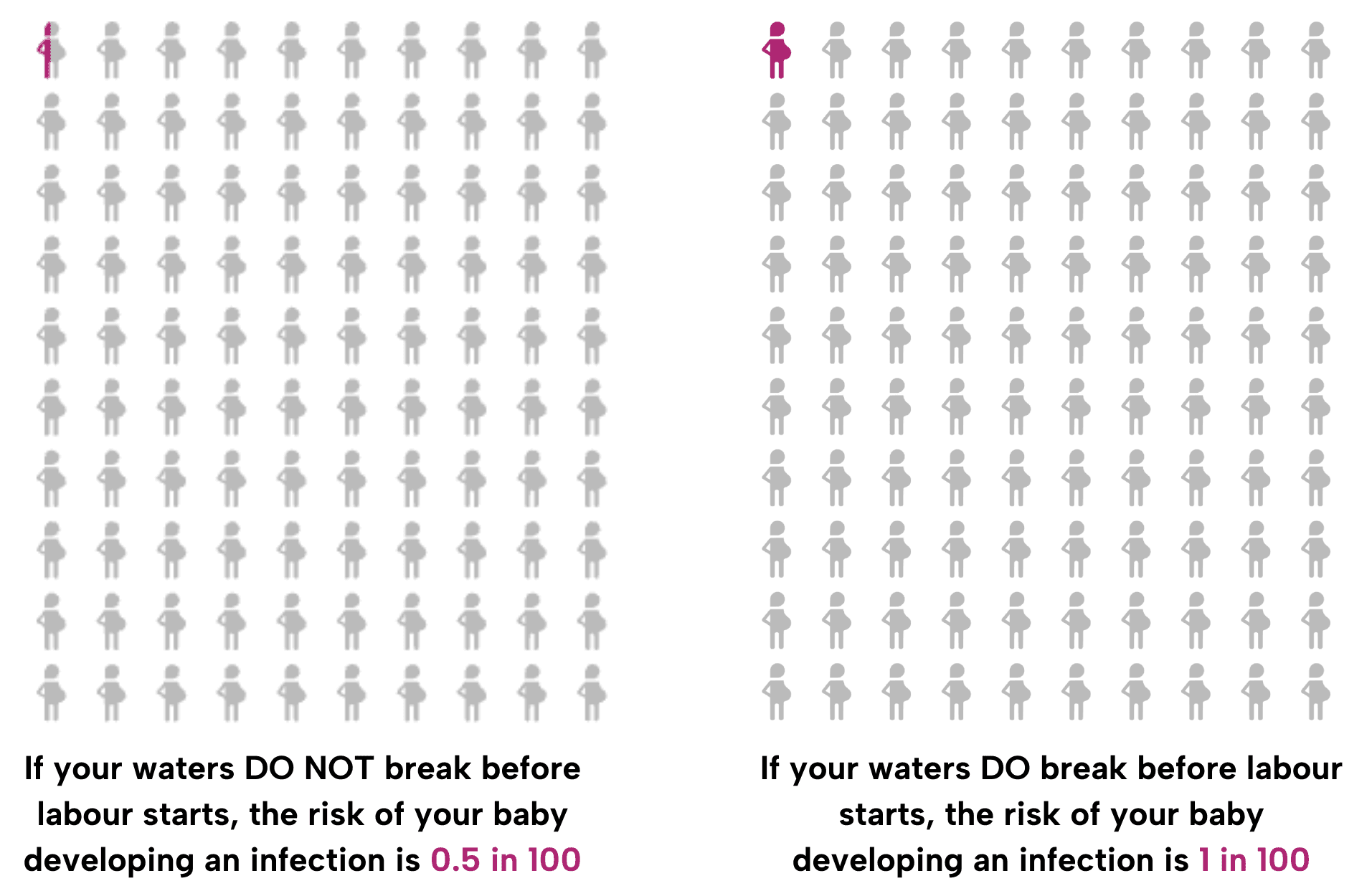Vaginal birth
There are a few things you can think about ahead of giving birth to create the environment that feels most comfortable and suitable to your needs.
Choosing where to give birth
Women give birth in different places: at home, in a midwife-led unit either on or off a hospital site, or in hospital on a doctor/consultant-led unit. Each location has its own benefits and risks. Most care during labour is given by midwives but certain things are only available from doctors, for example epidural, instrumental vaginal birth, caesarean birth, management of infection and other urgent surgical interventions. Your midwife or doctor may recommend a specific place for your birth based on risk factors or previous complications. Sometimes you may be asked to move location if it becomes necessary. Please discuss your individual circumstances with your clinical team.

Read more
Signs of labour starting
There are lots of signs of labour starting. Contractions might begin which may feel like intense period pains and are different from earlier Braxton-Hicks contractions as they are longer. Lower back pain and a feeling of heaviness or achiness. The mucus plug, a jelly-like pink substance, may come out of your vagina, indicating that the cervix (neck of the womb) is starting to open. Your waters can break before or during labour, either as a slow trickle or a sudden gush.
Read more
Waters breaking before labour starts
If your water breaks before labour, contact your midwife or maternity unit. You should contact your maternity unit immediately if there is any bleeding. You will be offered induction straight away or at 24 hours if you prefer. 60 in 100 labours start naturally within 24 hours of the waters breaking. Waiting too long means there is a higher risk of serious infection for your baby. You can continue to have baths and showers as normal as this is not known to increase your risk of infection, however, sexual intercourse after your waters have broken may increase infection risk.

Read more
Food and drink during labour
During labour, you will have the freedom to eat and drink, although there may be recommendations for a light diet for some women. There's advantage to consuming more fluids than usual, isotonic drinks might be preferable to water. However, personal medical conditions need to be considered, so please talk to your midwives and doctors.
Read more
People at your labour
There are different people you will need to support your labour, each with a different purpose and role to play. You can choose who you would present to support you and if you would prefer if a student not to be present.
